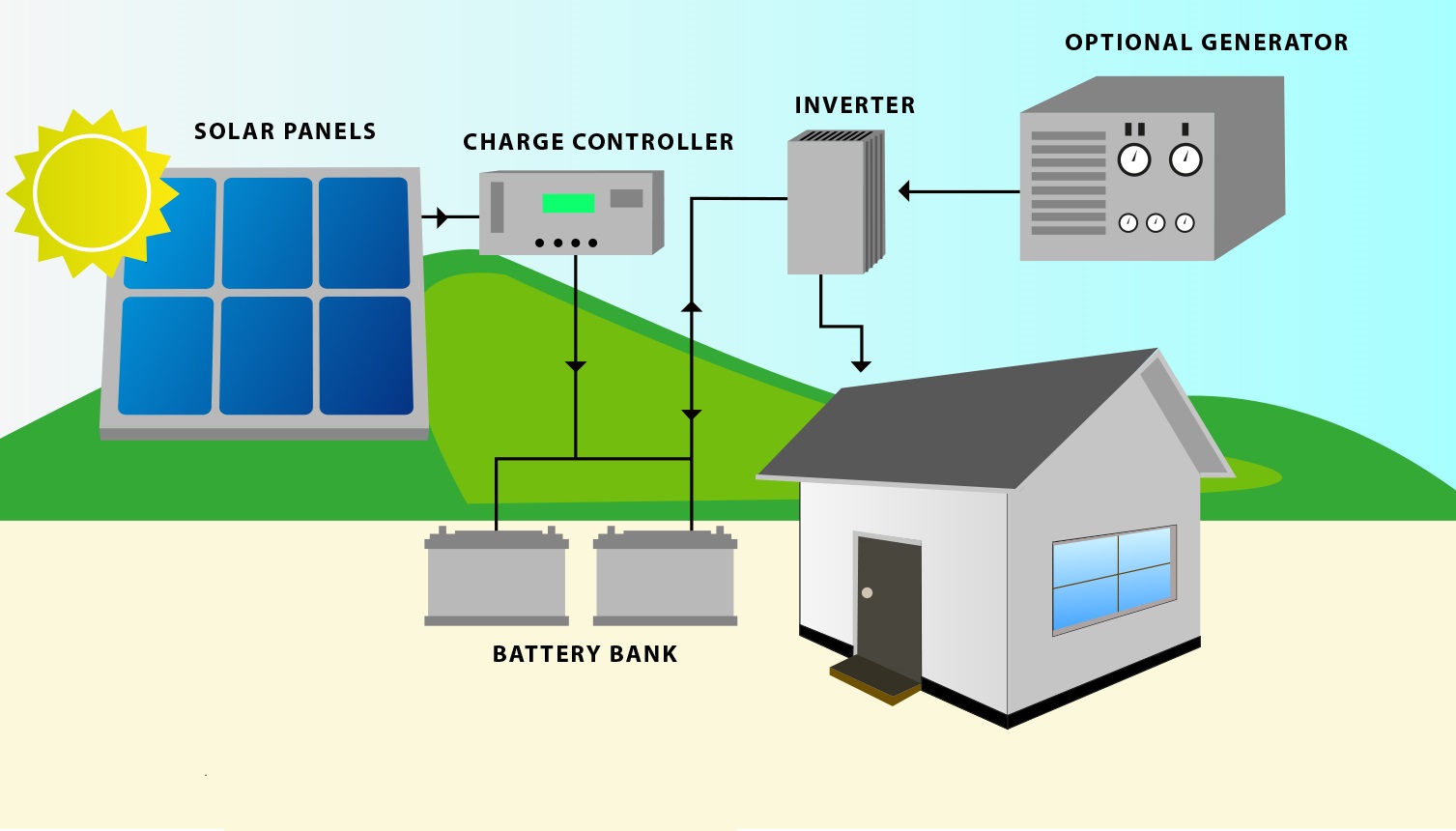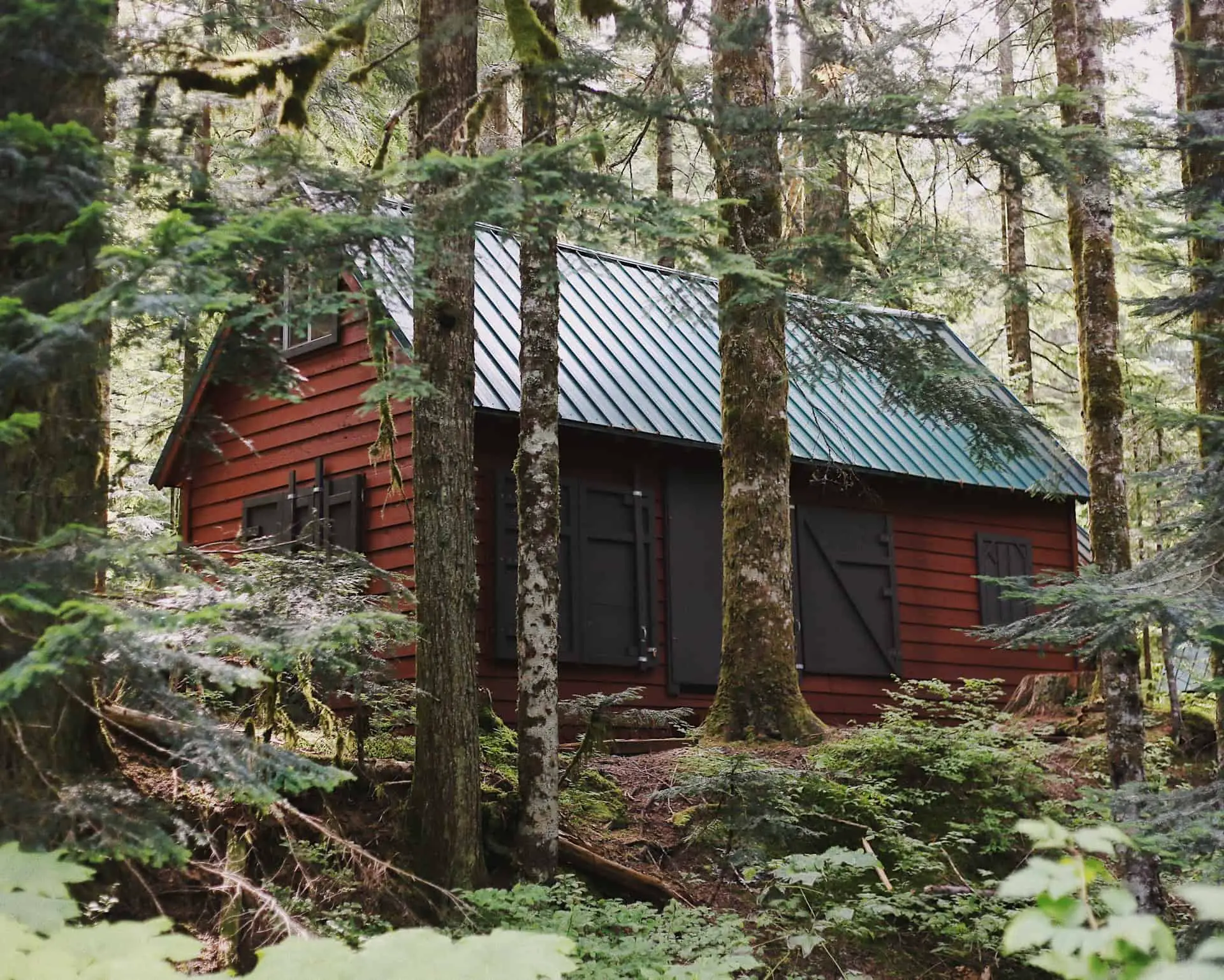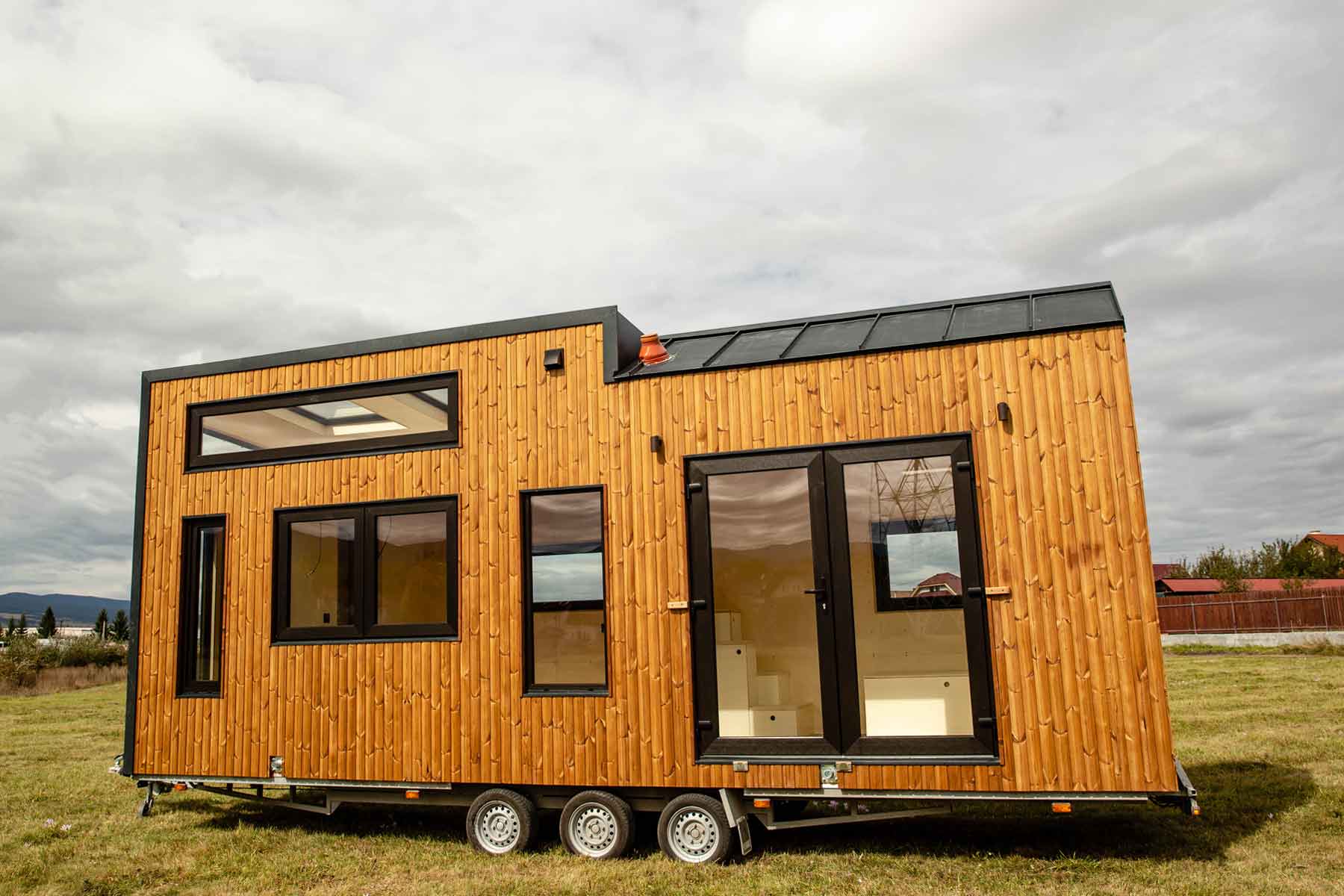Why is off the grid living bad – Why is off-grid living bad? The romanticized image of self-sufficient living, far from the hustle of modern society, often overshadows the harsh realities. This article delves into the significant challenges and drawbacks associated with abandoning the grid, exploring the financial, logistical, environmental, social, and safety concerns that many face.
From the substantial upfront investment in solar panels and water systems to the constant maintenance and potential for costly repairs, off-grid living presents a unique set of financial hurdles. Furthermore, access to essential services like healthcare, reliable internet, and even groceries can become severely limited, impacting daily life and overall well-being. The environmental impact of off-grid energy sources and the challenges of waste management in remote areas also raise significant concerns about sustainability.
Finally, the potential for social isolation and increased safety risks add another layer of complexity to this lifestyle choice.
Limited Access to Resources and Services
Off-grid living, while romanticized by some, presents significant challenges related to access to essential resources and services. The remoteness inherent in this lifestyle often translates to considerable difficulties in obtaining everyday necessities and accessing crucial support systems, impacting the quality of life and even posing safety risks.The limitations extend across various aspects of daily life, from procuring basic goods to accessing healthcare and maintaining communication with the outside world.
These limitations are not merely inconveniences; they represent substantial hurdles that significantly detract from the perceived benefits of off-grid existence.
Grocery and Essential Supply Acquisition
Securing groceries and other essential supplies poses a constant logistical challenge for off-grid residents. Distances to the nearest store can be vast, requiring long and often arduous journeys, sometimes across difficult terrain. Transportation costs become significantly higher, and perishable goods may spoil before reaching their destination. Furthermore, the limited availability of goods in remote areas often forces off-grid dwellers to compromise on choice and freshness, impacting dietary diversity and overall health.
For instance, a family living deep in the woods might only have access to a limited selection of non-perishable items at a significantly inflated price compared to those living in towns. This necessitates meticulous planning, considerable storage space, and often a reliance on self-sufficiency through gardening or hunting, which may not always be reliable or sufficient.
Healthcare Access and Emergency Services
Access to healthcare is severely restricted in off-grid communities. Emergencies, particularly those requiring immediate medical attention, pose a significant threat. The time it takes for emergency medical services to reach remote locations can be a matter of life or death. Even routine medical check-ups and preventative care become difficult to access, leading to potential health complications. For example, a broken bone might take hours, if not days, to receive treatment, leading to complications during healing.
Furthermore, the lack of readily available healthcare professionals and specialized medical equipment significantly limits the types of medical conditions that can be addressed effectively in these settings. Telemedicine offers some potential solutions, but its effectiveness is limited by unreliable internet connectivity, a frequent problem in off-grid areas.
Internet and Communication Limitations
Reliable internet and communication access are often nonexistent or severely limited in off-grid locations. This restricts access to information, education, and essential services that rely on online platforms. Maintaining contact with family, friends, and emergency services becomes challenging, isolating individuals and families from support networks. For instance, a farmer relying on weather forecasts for crop management might be unable to access crucial information due to poor satellite reception.
The lack of consistent connectivity also impacts the ability to work remotely, limiting employment opportunities and economic prospects. This digital divide exacerbates the already significant challenges faced by off-grid residents.
Educational Opportunities
Educational opportunities in off-grid communities are significantly limited compared to on-grid areas. Access to quality schools, libraries, and educational resources is often nonexistent or severely restricted. Children living off-grid may receive inadequate schooling, limiting their future opportunities. Homeschooling becomes a necessity for many families, which places a significant burden on parents who may lack the necessary resources or expertise.
This lack of access to formal education hinders social mobility and perpetuates a cycle of limited opportunities. For example, a child living off-grid might fall behind their peers in urban areas, affecting their future college applications and career prospects.
Impact on Daily Life
The cumulative effect of limited access to resources and services significantly impacts daily life in off-grid communities. Residents face constant challenges in meeting their basic needs, managing emergencies, and accessing essential services. This can lead to increased stress, isolation, and a reduced quality of life compared to those living in more connected communities. The need for constant vigilance, resourcefulness, and self-reliance, while often romanticized, can also be overwhelming and contribute to a sense of vulnerability and insecurity.
For instance, the need to meticulously plan for every aspect of daily life, from procuring food to managing healthcare, adds considerable stress and can limit spontaneous activities and social interactions.
Environmental Challenges and Sustainability Concerns

Off-grid living, while appealing to some seeking self-sufficiency and a simpler life, presents significant environmental challenges that must be carefully considered. The sustainability of these lifestyles is often questionable, particularly when considering the impact on local ecosystems and the overall carbon footprint. A comprehensive assessment reveals a complex interplay between perceived benefits and undeniable environmental consequences.
Off-Grid Energy Generation’s Environmental Impact
The pursuit of energy independence often involves the use of methods that can have substantial environmental consequences. Solar power, while generally considered clean, requires the manufacturing and disposal of panels, which can involve hazardous materials. Wind turbines, while efficient, can impact bird and bat populations. Similarly, biomass energy, derived from burning wood or other organic matter, contributes to air pollution and deforestation if not managed sustainably.
Hydropower, while renewable, can disrupt aquatic ecosystems and alter water flow patterns. The environmental impact varies greatly depending on the specific technology and its implementation. Improperly managed systems can lead to significant negative consequences, highlighting the need for careful planning and responsible resource management.
Waste Management Challenges in Remote Areas
Off-grid living often translates to limited access to organized waste management systems. The disposal of household waste, hazardous materials (batteries, electronics), and sewage poses significant challenges in remote locations. Improper waste disposal can contaminate soil and water sources, harming local ecosystems and potentially affecting human health. The lack of infrastructure for recycling and composting further exacerbates the problem, leading to increased landfill accumulation or uncontrolled dumping.
This lack of infrastructure is a significant environmental hurdle that must be addressed for truly sustainable off-grid living. For example, a community relying solely on septic systems may face groundwater contamination if the systems are not properly maintained and regulated.
Impact of Off-Grid Living on Local Ecosystems
The impact of off-grid living on local ecosystems can be profound and far-reaching. Increased human activity in previously undisturbed areas can lead to habitat fragmentation, loss of biodiversity, and soil erosion. The introduction of non-native species through human transport can disrupt delicate ecological balances. Furthermore, the reliance on local resources for building materials and fuel can lead to deforestation and resource depletion.
The construction of homes and infrastructure can cause physical disturbance to natural habitats, affecting wildlife populations and their migration patterns. For instance, the construction of a well or the clearing of land for farming can drastically alter water tables and vegetation cover, affecting local animal species.
Comparison of Carbon Footprints: Off-Grid vs. Traditional Living
While off-grid living is often touted as environmentally friendly, a direct comparison of its carbon footprint with that of traditional living is complex and highly variable. While some off-grid lifestyles might boast lower carbon emissions due to reduced reliance on fossil fuels, others may have a higher footprint depending on energy sources, transportation needs, and waste management practices. For example, reliance on wood-burning stoves for heating can contribute significantly to air pollution and carbon emissions, potentially exceeding the emissions of a home heated by natural gas.
The overall environmental impact is heavily dependent on the specific choices and practices of individuals and communities.
You also can investigate more thoroughly about off grid living room to enhance your awareness in the field of off grid living room.
Sustainability of Various Off-Grid Energy Sources
| Energy Source | Environmental Impact | Cost | Efficiency |
|---|---|---|---|
| Solar Photovoltaic | Low (manufacturing and disposal concerns) | Moderate to High (initial investment) | High (depending on location and technology) |
| Wind Turbine | Moderate (impact on wildlife) | High (initial investment) | High (depending on location and wind conditions) |
| Biomass (Wood) | High (air pollution, deforestation) | Low (if locally sourced) | Moderate |
| Hydropower (Small Scale) | Moderate (impact on aquatic ecosystems) | Moderate | High |
Safety and Security Concerns

Off-grid living, while appealing to some, presents significant safety and security challenges absent in more conventional living arrangements. The remoteness inherent in this lifestyle increases vulnerability to various threats, demanding careful consideration and proactive mitigation strategies. These risks extend beyond simple inconvenience, potentially impacting the well-being and even the survival of off-grid inhabitants.Remote locations inherently increase response times for emergency services.
The lack of immediate access to law enforcement, medical care, and fire departments necessitates a heightened level of self-reliance and preparedness. This self-reliance extends to protecting oneself and one’s property from theft or vandalism, as well as managing potential hazards associated with off-grid systems.
Potential Hazards Associated with Off-Grid Energy Systems
Off-grid energy systems, while offering independence, also introduce safety risks. Improperly installed or maintained solar panels, wind turbines, or generators can pose fire hazards, electrocution risks, and carbon monoxide poisoning. For example, a faulty generator, inadequately ventilated, can release lethal levels of carbon monoxide, leading to serious injury or death. Regular inspections, professional maintenance, and adherence to safety regulations are crucial to mitigate these risks.
Furthermore, the use of propane or other flammable fuels for cooking and heating requires careful handling and storage to prevent accidents.
Protecting Property from Theft and Damage
The isolation of off-grid living makes properties more susceptible to theft and vandalism. Unlike urban or suburban areas with frequent patrols and neighbors, remote locations offer greater opportunities for criminal activity. Strategies to enhance security include installing robust security systems such as alarm systems, motion detectors, and surveillance cameras. Strengthening physical security through reinforced doors, windows, and perimeter fencing is also essential.
Investing in security lighting and employing guard dogs can also serve as effective deterrents. Regularly checking the property for signs of intrusion and maintaining good relationships with neighbors, even if distant, can provide an additional layer of security.
Ensuring Water Source Safety, Why is off the grid living bad
Off-grid water sources, whether wells, springs, or rainwater collection systems, require careful management to ensure safety. Contamination from bacteria, viruses, or chemicals can lead to serious illness. Regular water testing is essential to monitor for contaminants and ensure potability. Proper filtration and purification methods, such as boiling or using water filters, are crucial to remove harmful substances.
Maintaining the cleanliness of collection systems and preventing animal access are equally important steps to protect the water source from contamination.
Safety Precautions for Off-Grid Living
Careful planning and preparedness are essential for minimizing risks. A comprehensive safety plan should include:
- Regular maintenance checks of all systems and equipment.
- Emergency communication plans, including satellite phones or two-way radios.
- First-aid training and a well-stocked first-aid kit.
- A comprehensive emergency supply kit including food, water, and essential medications.
- Self-defense training and appropriate tools.
- Knowledge of basic survival skills, including fire starting and shelter building.
- Fire safety measures, including smoke detectors and fire extinguishers.
- Awareness of local wildlife and potential hazards.
Living off the grid requires a significant commitment to safety and security. Failure to address these concerns can lead to serious consequences. Proactive planning, regular maintenance, and a comprehensive safety plan are crucial for mitigating risks and ensuring a safe and secure off-grid lifestyle.
Dependence on Self-Sufficiency Skills: Why Is Off The Grid Living Bad
Off-grid living demands a level of self-reliance far exceeding that of traditional lifestyles. The ability to maintain and repair essential systems, produce food, and manage resources independently is paramount. A lack of these skills significantly increases the challenges and risks associated with this lifestyle choice.The successful navigation of off-grid living hinges on possessing a diverse and robust skillset.
This extends beyond basic home repairs; it encompasses expertise in areas like plumbing, electrical work, carpentry, mechanics (for generators, water pumps, etc.), gardening, food preservation, and potentially even basic healthcare. The absence of readily available professional services necessitates proficiency in multiple trades.
Challenges of Maintaining Off-Grid Systems
Maintaining and repairing off-grid systems without professional assistance presents considerable difficulties. A malfunctioning solar panel array, for example, can leave a household without power, requiring knowledge of electrical wiring and troubleshooting to restore functionality. Similarly, a broken water pump can disrupt the water supply, demanding expertise in pump mechanics and potentially well maintenance. These repairs often involve working with complex systems, requiring specialized tools and knowledge that may be difficult to acquire or maintain in remote locations.
The lack of readily available parts also poses a significant obstacle. A simple repair might become a prolonged ordeal due to the need to source replacements from distant suppliers.
Limitations of Self-Sufficiency
While self-sufficiency is a cornerstone of off-grid living, relying solely on it has limitations. Even the most skilled individual will encounter situations beyond their capabilities. Severe weather events, unforeseen mechanical failures, or unexpected health emergencies can quickly overwhelm individual resources and skills. Furthermore, the time commitment required to maintain self-sufficiency can be substantial, limiting opportunities for other pursuits and potentially leading to burnout.
For example, a prolonged illness could significantly hinder a person’s ability to tend to their garden or maintain essential systems.
Skill Comparison: Off-Grid vs. Traditional Living
The skill requirements for off-grid living differ significantly from those of traditional living. In traditional settings, reliance on external services and readily available resources reduces the need for extensive practical skills. Plumbing issues are handled by professionals, electricity is a reliable utility, and food is readily accessible from stores. Off-grid living, conversely, demands a proactive and multi-faceted approach, requiring a comprehensive understanding of various systems and the ability to independently maintain them.
The time and effort spent acquiring and maintaining these skills is substantial. For instance, someone accustomed to calling a plumber might find themselves spending hours troubleshooting a leaky pipe in an off-grid setting.
Necessity of Backup Plans and Contingency Measures
Given the inherent challenges of off-grid living, comprehensive backup plans and contingency measures are essential. This includes having readily available spare parts for critical systems, alternative power sources (such as a backup generator), and stored food and water supplies to mitigate disruptions. Developing a strong network with other off-grid dwellers can also provide crucial support in emergencies. For instance, a community-based system for sharing resources and expertise could prove invaluable during unexpected events, like a severe storm damaging multiple properties simultaneously.
Without such planning, even minor setbacks can escalate into major crises.
Ultimately, the decision to embrace off-grid living requires careful consideration of its multifaceted challenges. While the allure of independence and self-sufficiency is undeniable, the potential financial instability, limited access to resources, environmental impact, social isolation, and safety concerns cannot be ignored. A realistic assessment of these factors is crucial before taking the plunge into a life detached from the conveniences and support systems of modern society.


